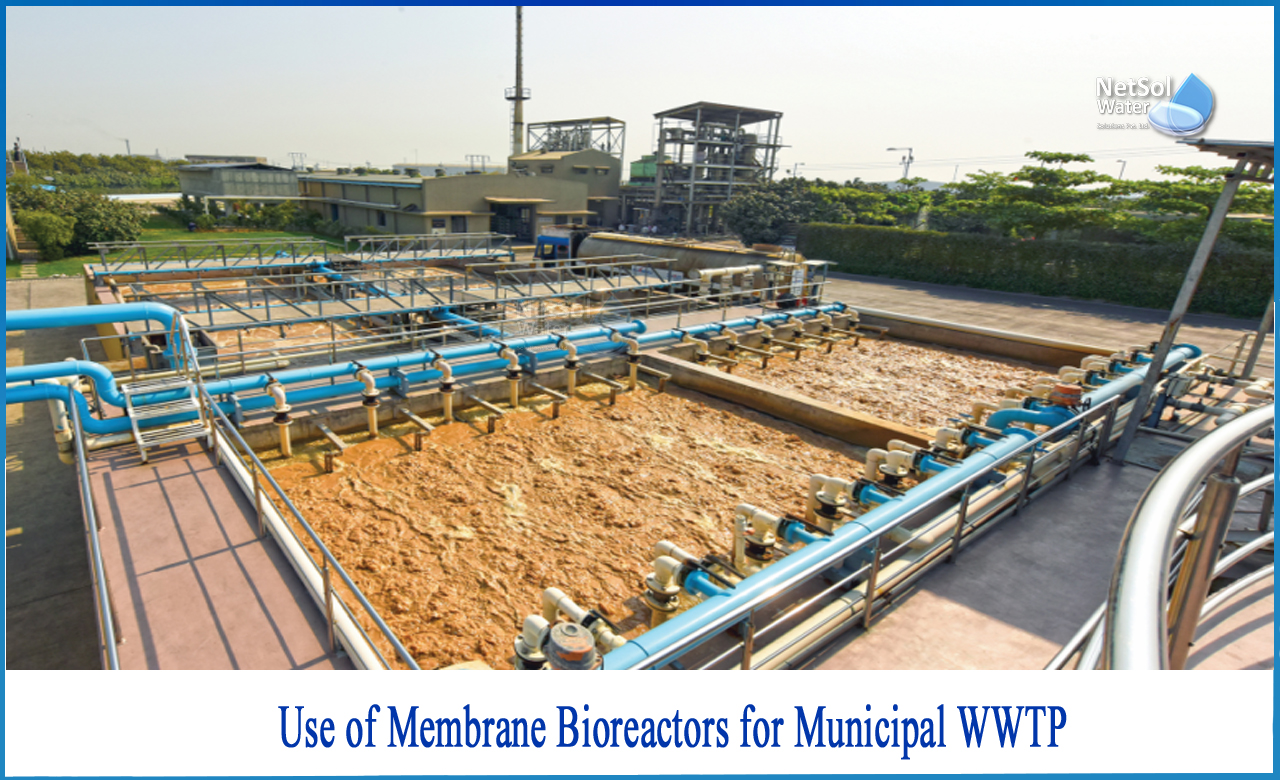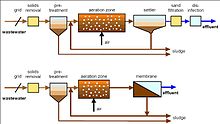Troubleshooting Common Issues with Membrane Bioreactor Systems
Troubleshooting Common Issues with Membrane Bioreactor Systems
Blog Article
The Benefits of Membrane Bioreactors in Sustainable Wastewater Administration
Membrane bioreactors (MBRs) stand for a crucial innovation in sustainable wastewater management, efficiently merging biological treatment with advanced membrane filtering innovation. This assimilation not just boosts effluent top quality by successfully getting rid of pollutants yet additionally opens up avenues for water reuse in various applications, therefore dealing with the pushing need for source conservation. The portable layout of MBRs adds to considerable reductions in environmental influence and functional expenses. As the demand for lasting remedies increases, checking out the multifaceted advantages of MBRs might expose unexpected ramifications for the future of wastewater therapy systems.
Review of Membrane Bioreactors
Membrane layer bioreactors (MBRs) stand for a substantial development in wastewater therapy technology, incorporating organic degradation with membrane layer filtering to enhance the effectiveness of the treatment procedure. This innovative system integrates the advantages of conventional triggered sludge processes with membrane innovation, permitting improved solid-liquid splitting up. MBRs utilize semi-permeable membranes to different cured water from biomass, causing premium effluent that can be recycled or safely released into the setting.
The functional style of MBRs normally entails a bioreactor where bacteria break down raw material, adhered to by a membrane device that filters the combined liquor. This configuration not only lessens the footprint of the treatment center however also enables higher biomass concentrations and minimized hydraulic retention times. MBRs are qualified of dealing with a broader variety of contaminants, including microorganisms and nutrients, making them suitable for various applications, from community wastewater treatment to industrial effluent handling.
The combination of MBRs right into wastewater monitoring systems is a measure of an expanding fad towards lasting and reliable practices in environmental engineering. Their ability to create top quality effluent while decreasing space demands settings MBR modern technology as a principal in contemporary wastewater therapy options.
Improved Effluent Top Quality

The membrane purification process functions as a physical obstacle, making it possible for the retention of microorganisms and particulate issue, which contributes to a more clear and cleaner effluent (Membrane Bioreactor). Moreover, MBRs operate at greater biomass concentrations than standard activated sludge systems, advertising extra effective biodegradation of pollutants. This causes a reduction in biochemical oxygen demand (FIGURE) and overall suspended solids (TSS) levels in the final effluent
Furthermore, MBRs demonstrate outstanding efficiency in dealing with tough wastewater compositions, such as industrial effluents and wastewater with high nutrient loads. Because of this, the effluent created is frequently of greater high quality, permitting even more flexible disposal options and minimized environmental influence. Inevitably, the boosted effluent quality attained with MBR innovation underscores its important function beforehand lasting wastewater management practices.
Water Reuse Opportunities
The premium effluent produced by membrane bioreactors (MBRs) opens up substantial chances for water reuse in different applications. MBRs efficiently eliminate pollutants, including microorganisms, suspended solids, and raw material, leading to treated water that meets or goes beyond regulative standards for reuse. This top quality allows for the execution of water recycling initiatives across diverse industries.
One noticeable application is in farming, where treated wastewater can be utilized for watering, advertising lasting farming methods while preserving freshwater resources. Furthermore, MBR-treated effluent can be utilized for commercial procedures such as air conditioning, cleaning, and as a process water resource, significantly decreasing the demand for drinkable water in these operations.
In metropolitan environments, MBRs help with using recovered water for landscape irrigation, toilet flushing, and various other non-potable uses, adding to the overall durability of water systems. The assimilation of MBR modern technology in decentralized systems help in managing localized water needs, particularly in water-scarce regions.
Minimized Ecological Influence
Just how can the fostering of membrane bioreactors (MBRs) add to a minimized environmental impact in wastewater monitoring? MBRs significantly enhance the therapy efficiency of wastewater while decreasing eco-friendly disruptions. By incorporating organic therapy procedures with membrane layer purification, MBRs properly remove a wide variety of pollutants, consisting of raw material, nutrients, and virus. This innovative filtration causes higher-quality effluent, which is essential for safeguarding marine ecosystems and decreasing the worry on all-natural water bodies.
Furthermore, MBRs operate at lower hydraulic retention times contrasted to conventional systems, leading to smaller sized therapy plant footprints. This portable design decreases land usage, consequently protecting all-natural habitats and biodiversity. The procedure additionally creates much less sludge than conventional approaches, alleviating disposal challenges and lowering greenhouse gas discharges related to sludge administration.
Furthermore, MBRs facilitate the recuperation of beneficial sources, you can try these out such as water and nutrients, adding to a circular economic situation. By making it possible for water reuse for watering or commercial procedures, MBRs assist alleviate freshwater deficiency, hence advertising sustainable water use practices. Ultimately, the fostering of MBR innovation stands for a substantial stride towards lessening the environmental influence of wastewater monitoring systems.
Financial Benefits of MBRs

In addition, MBRs help with the production of premium effluent, which can be recycled for numerous applications, such as agricultural watering and commercial procedures - Membrane Bioreactor. This reuse capacity can considerably lower water purchase expenses, supplying a monetary incentive for sectors dealing with rigorous water policies
The compact layout of MBR systems also results in reduced land requirements, which is especially valuable in city areas where actual estate is expensive. By lessening space, markets and municipalities can reduce land purchase and maintenance expenses.
Additionally, MBRs often call for less constant upkeep and have a longer lifespan than typical systems, even more adding to cost savings. In summary, the financial benefits of MBRs-- varying from decreased operational costs to land financial why not check here savings and effluent reuse-- make them a compelling selection for sustainable wastewater monitoring, using both instant and long-lasting financial advantages.
Final Thought
Membrane bioreactors stand for a transformative approach to sustainable wastewater administration, combining biological treatment with sophisticated membrane layer filtration for premium effluent quality. Their capability for effective contaminant elimination helps with water reuse, consequently saving vital freshwater sources. In addition, MBRs add to decreased ecological influences with portable designs and reduced sludge generation. Economic benefits additionally improve their feasibility, making MBRs a promising service for dealing with the difficulties of wastewater therapy and promoting sustainable resource management.
Membrane bioreactors (MBRs) represent a critical improvement in lasting wastewater monitoring, successfully merging organic therapy with sophisticated membrane purification modern technology.Membrane layer bioreactors (MBRs) stand for a considerable development in wastewater therapy modern technology, incorporating organic destruction with membrane filtering to enhance Read More Here the performance of the therapy procedure.Accomplishing improved effluent top quality is one of the most substantial advantages of making use of membrane bioreactors (MBRs) in wastewater treatment.In addition, MBRs show excellent efficiency in treating tough wastewater compositions, such as commercial effluents and wastewater with high nutrient tons.Integrating membrane bioreactors (MBRs) into wastewater management not just minimizes environmental influence but also offers considerable economic advantages.
Report this page